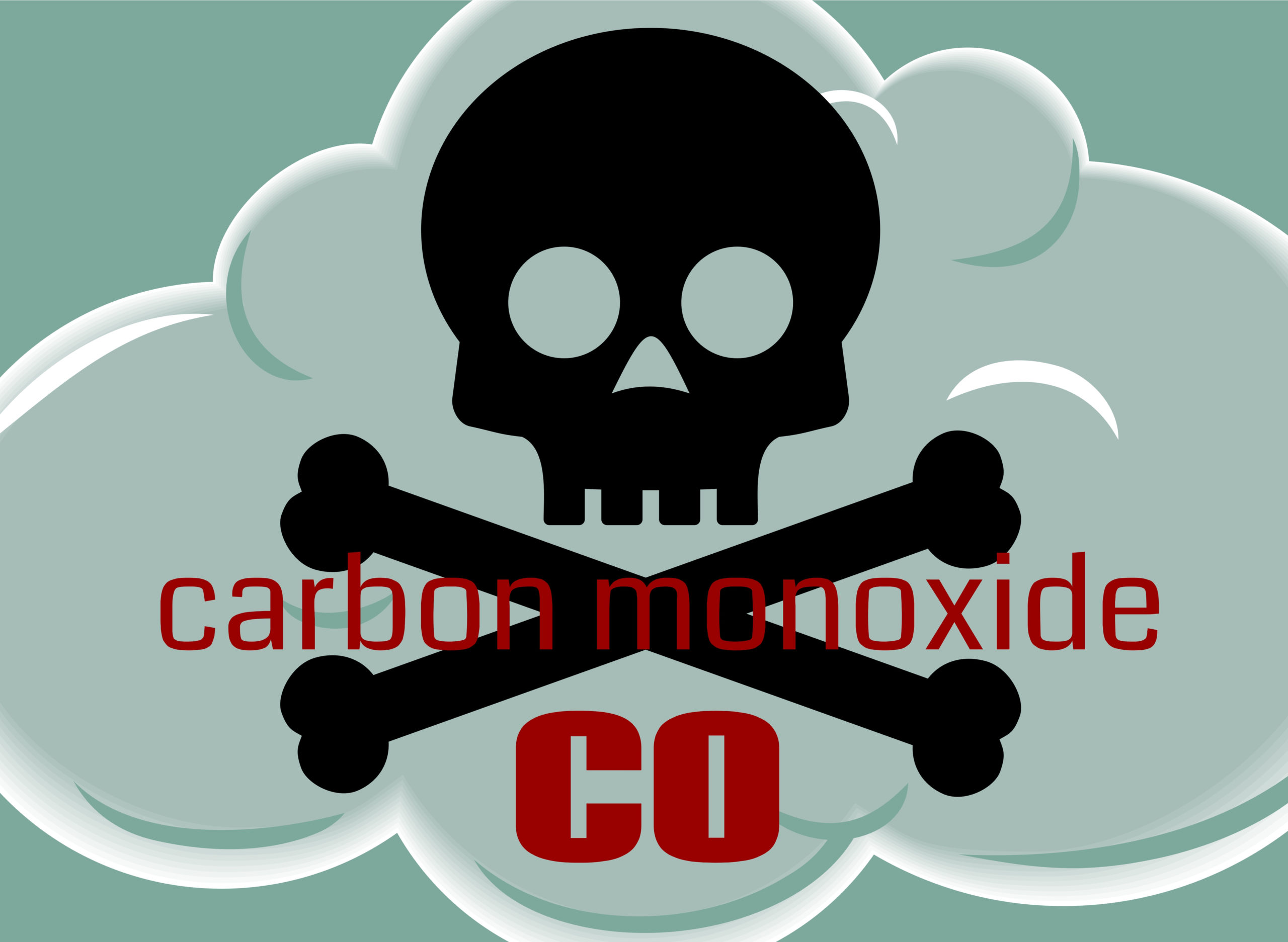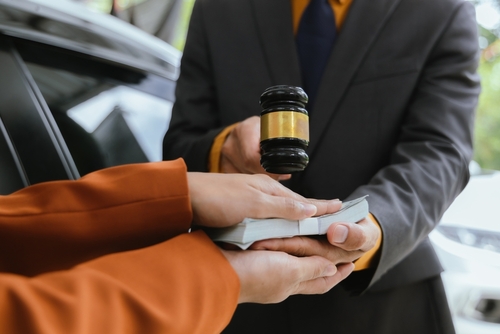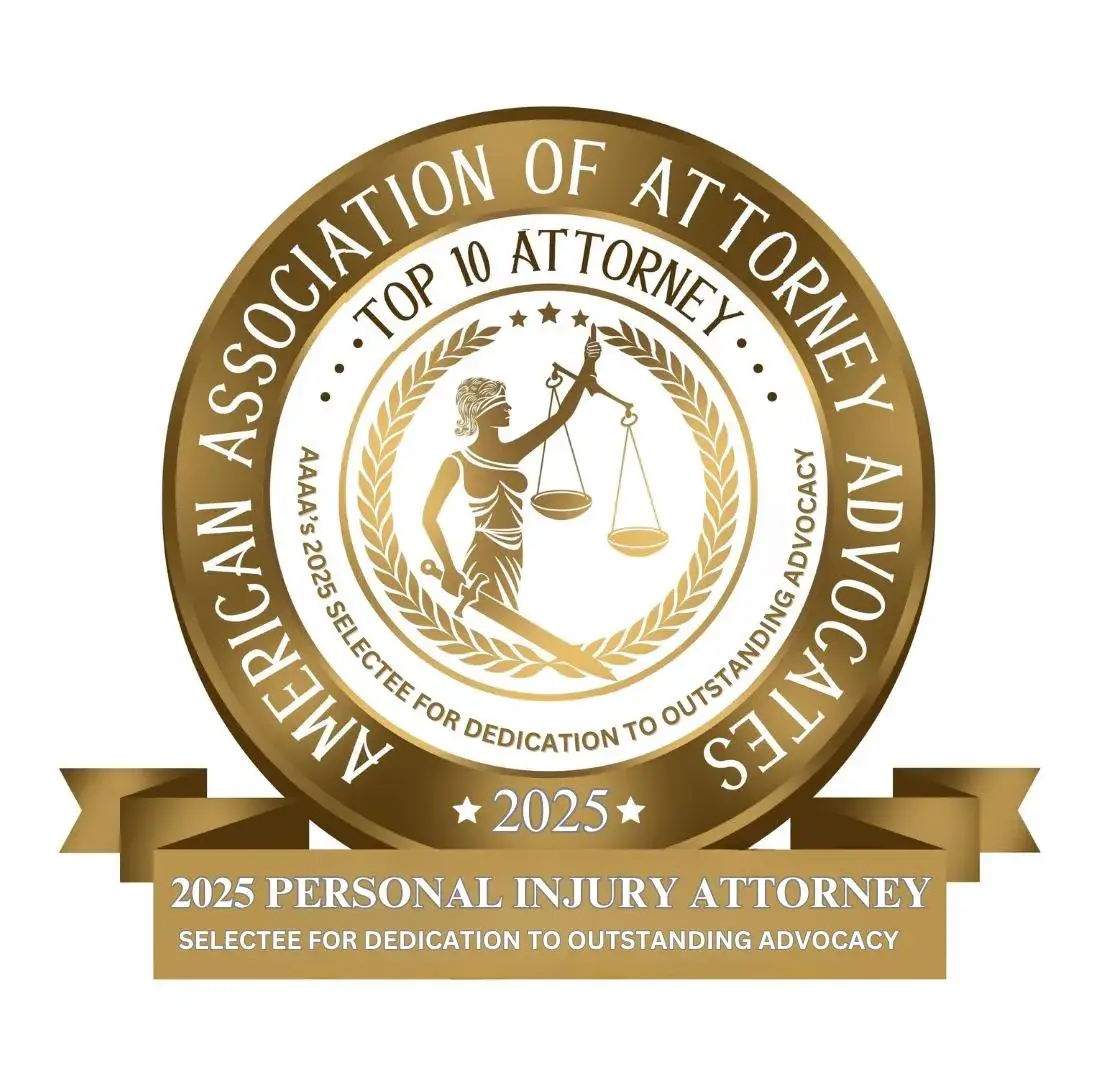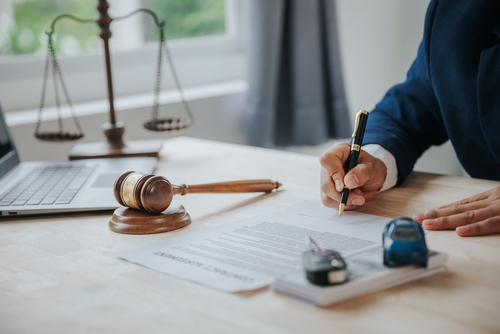
Who Can Be Held Liable for a Car Accident in New Jersey?
In New Jersey, liability for a car accident extends beyond the other driver to include their employer, the vehicle’s owner, a bar that over-served them, or even a government agency responsible for road safety. The process begins with your own Personal Injury Protection (PIP) coverage for immediate medical costs, but holding the responsible parties accountable for everything else requires a separate claim or lawsuit.
Identifying every liable party is one of the most difficult parts of a car accident claim. New Jersey’s modified comparative negligence rule adds another layer, as your compensation is reduced, or eliminated entirely, if you are found partially at fault. A Fort Lee car accident lawyer can guide you through this process and protect your right to fair compensation.
However, the law provides clear pathways to hold the responsible parties accountable and pursue the financial recovery needed to rebuild.
If you have a question about who is responsible for the injuries and losses from your recent accident, call Maggiano, DiGirolamo & Lizzi, P.C. for a free consultation at (201) 585-9111.
Key Takeaways for Car Accident Liability in New Jersey
- New Jersey’s “no-fault” system uses your own PIP insurance for initial medical bills. This means your own policy pays first, which helps you get immediate medical care without waiting for a fault determination.
- Liability extends beyond the at-fault driver to employers, vehicle owners, and even government agencies. A thorough investigation identifies all responsible parties to maximize your potential recovery.
- Your compensation is reduced by your percentage of fault, and you recover nothing if you are 51% or more at fault. New Jersey’s comparative negligence rule makes it crucial to build a strong case against the other parties.
First, Your Own Insurance: How New Jersey’s “No-Fault” System Works for You
After a crash, medical bills start arriving within days. You might worry about how to pay for doctor visits or physical therapy, especially if you are unable to work. Hire an Attorney After a Car Accident to protect your rights and guide you through the claims process.
This is where many people get confused. They assume the at-fault driver’s insurance should pay for everything immediately. But in New Jersey, the system works differently, and waiting for the other driver’s insurance to act means your bills go unpaid for months.
New Jersey is a “no-fault” state. This is a legal concept that simply means your own car insurance policy is your first source of coverage for medical expenses, regardless of who caused the accident.
What is Personal Injury Protection (PIP)?
This is the mandatory coverage in your policy that pays for your medical treatment. Under the Automobile Insurance Cost Reduction Act, all drivers must carry it. PIP covers costs like: doctor bills, hospital stays, prescription drugs, and even some lost wages. The minimum required PIP coverage is $15,000, but you may have purchased a higher limit. You must understand your policy, as medical costs typically burn through this limit quickly.
Does “No-Fault” Mean No One Is to Blame?
No. “No-fault” only applies to how your initial medical bills are paid. The person who caused the crash is still considered “at fault” or “liable.” Holding the at-fault party responsible is how you recover compensation for things PIP doesn’t cover, such as pain and suffering, future lost income, and medical bills that exceed your PIP limit.
How to Prove Who the At-Fault Driver Was
The most common liable party is the driver who directly caused the crash through their carelessness. In legal terms, this is called “negligence.”
To hold another driver liable, we must show four things:
- Duty: Every driver has a duty of care to operate their vehicle safely and follow traffic laws. This includes paying attention to the road, obeying speed limits, and yielding the right of way.
- Breach: The driver violated this duty. For example, they were texting while driving, ran a red light, or followed you too closely.
- Causation: This breach of duty directly caused the accident and your injuries. We have to connect their action (e.g., looking at their phone) to the collision.
- Damages: You suffered actual harm, which includes medical bills, lost wages, vehicle damage, and pain and suffering.
How We Establish Negligence:
- Police Reports: While not always admissible in court, the officer’s initial report provides a narrative of the events.
- Witness Statements: Independent witnesses who saw the crash offer unbiased accounts.
- Physical Evidence: This includes photos of the accident scene, vehicle damage, and skid marks.
- Expert Analysis: In some cases, we work with accident reconstructionists who use physics and engineering principles to show how a crash happened.
What if You’re Blamed for Part of the Accident? New Jersey’s Comparative Negligence Rule
The other driver’s insurance company may conduct its own investigation. Their goal is to protect their business’s bottom line, which means they will look for any evidence to argue you were also at fault. Average Settlement for a Car Accident can vary widely, so having a lawyer helps you pursue fair compensation.
They might claim you were speeding, didn’t signal, or were distracted, even if the other driver clearly caused the crash. If they succeed, it seriously impacts your ability to get fair compensation. This is because New Jersey follows a modified comparative negligence rule.
What This Means for You
This rule states that you are allowed to recover damages even if you were partially at fault, as long as your share of the blame is 50% or less. Your final compensation award is reduced by your percentage of fault.
The 51% Bar
If you are found to be 51% or more at fault for the accident, you are barred from recovering any compensation from the other driver. Our role is to build the strongest possible case to demonstrate the other party’s fault and ensure no amount of blame is unfairly placed on you.
Beyond the Driver: Who Else Could Be Held Liable?

Sometimes, the person behind the wheel is not the only one responsible. A thorough investigation may reveal other parties whose actions or inaction contributed to the crash. Holding all responsible parties accountable is how we pursue the maximum compensation available under the law. How Much Is a Car Accident Settlement depends on factors like injury severity, medical costs, and lost income.
The Vehicle’s Owner?
If the driver doesn’t own the car, the owner could be liable under a legal theory called “negligent entrustment.” This applies if the owner knew, or should have known, that the person they lent their car to was a reckless, inexperienced, or impaired driver. For example, lending a car to someone with a history of DUIs.
An Employer?
If the at-fault driver was working at the time of the crash, their employer may be held responsible. This is known as “vicarious liability” or “respondeat superior.” This applies to delivery drivers, truck drivers, sales representatives, and anyone else using a vehicle for work-related duties. The employer is considered responsible for the actions of its employees while they are on the clock.
A Bar, Restaurant, or Social Host?
New Jersey has laws in place to hold establishments and individuals accountable for serving alcohol to someone who then causes a drunk driving accident.
- Dram Shop Liability: A bar, restaurant, or liquor store is liable if they served alcohol to a person who was “visibly intoxicated.” This is governed by New Jersey’s Dram Shop Act.
- Social Host Liability: This same rule applies to private individuals. If you host a party and serve alcohol to a visibly intoxicated guest who you know will be driving, you could be held responsible for any harm they cause.
A Government Agency?
A state, county, or city government may be liable if the accident was caused by a dangerous road condition.
Examples include:
- Poorly designed intersections or confusing “jughandles.”
- Malfunctioning traffic signals or missing stop signs.
- Large potholes or uneven pavement that were not repaired in a reasonable time.
Note: Claims against government entities in New Jersey have very strict rules and short deadlines. You must file a formal “Notice of Tort Claim” within 90 days of the accident, or you may lose your right to sue.
A Vehicle or Parts Manufacturer?
If the crash was caused by a vehicle defect, the manufacturer of the car or a specific part is liable under product liability law. This could be due to:
- Defective brakes that failed.
- Tires that blow out unexpectedly.
- Faulty steering components or airbags that don’t deploy.
What Happens in Accidents with Uninsured Drivers or Hit-and-Runs?
You’ve been in an accident, but the other driver either has no insurance or fled the scene. This leaves you wondering who will pay for your vehicle damage and your injuries that go beyond your PIP limits. It feels like you have no options. Who Is Liable in a Car Accident is a key question, and a lawyer can help identify every responsible party.
This is where your own insurance policy helps again, specifically your Uninsured/Underinsured Motorist (UM/UIM) coverage.
- Uninsured Motorist (UM) Coverage: This coverage steps in to pay for your injuries and damages if you are hit by a driver with no insurance or in a hit-and-run.
- Underinsured Motorist (UIM) Coverage: This applies when the at-fault driver has insurance, but their policy limits are too low to cover the full extent of your damages. Your UIM coverage makes up the difference.
Though you are dealing with your own insurance company, they may still try to minimize what they pay. They are a business that must balance paying claims with making a profit. We handle the communications and negotiations with them on your behalf.
Frequently Asked Questions About Car Accident Liability in New Jersey
Do I need to report the accident to the police?
Yes. Under New Jersey law, you must report any crash that involves injury, death, or property damage over $500. A police report is also a key piece of evidence for your claim.
What is a "verbal threshold" or "limitation on lawsuit" option on my insurance?
This is an option on New Jersey car insurance policies that limits your right to sue for pain and suffering unless your injuries are significant, such as dismemberment, significant disfigurement, a displaced fracture, or a permanent injury. We will review your policy and medical records to determine if your injuries meet this threshold.
I live in Fort Lee, where traffic is always heavy. Does that affect my case?
Heavy traffic in areas like Fort Lee, Palisades Park, or Hackensack creates difficult accident scenarios with multiple vehicles. While it doesn’t change the laws of liability, it makes proving fault more challenging. A thorough investigation is key in these cases.
The other driver was from New York. Does that change who is liable?
No, the laws of the state where the accident occurred (New Jersey) will apply to determine liability. However, dealing with an out-of-state insurance company adds administrative hurdles, which is something we handle for our clients.
How long do I have to file a lawsuit for a car accident in New Jersey?
In most cases, the statute of limitations for filing a personal injury lawsuit in New Jersey is two years from the date of the accident under N.J.S.A. 2A:14-2. As mentioned earlier, if a government entity is involved, you have only 90 days to file a notice of claim.
Securing Your Recovery After a New Jersey Accident
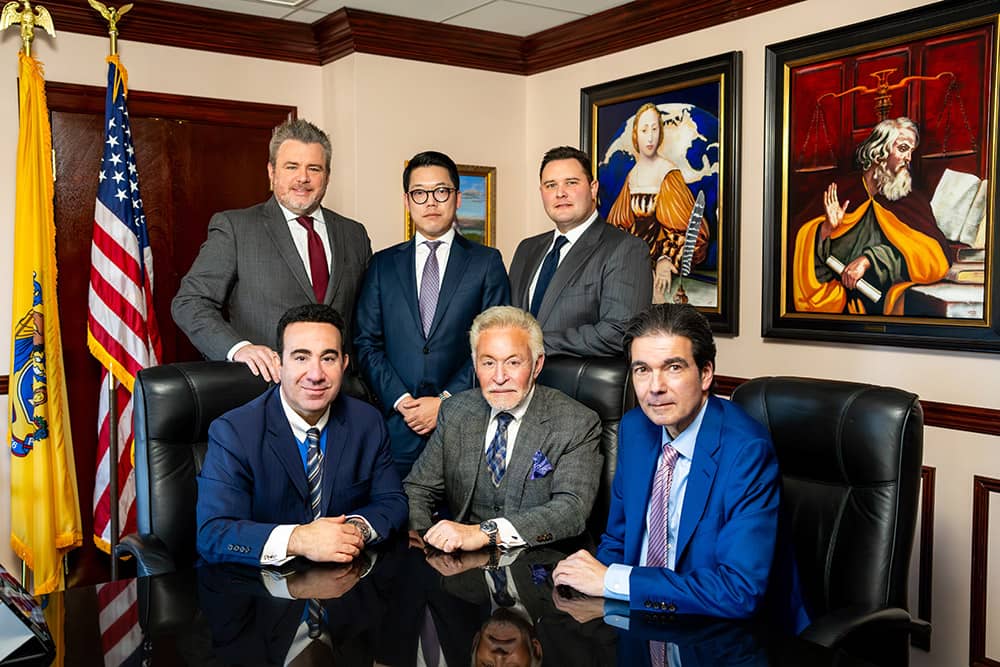
At Maggiano, DiGirolamo & Lizzi, P.C., we regularly help families in Fort Lee, Hackensack, Englewood, Teaneck, and the surrounding Bergen County communities. We understand the roads, the courts, and the challenges you face after a serious crash.
The sooner we begin investigating and preserving evidence, the stronger your claim will be. We are here to listen and explain your options.
For a free, no-obligation discussion about your case, call us today at (201) 585-9111.



